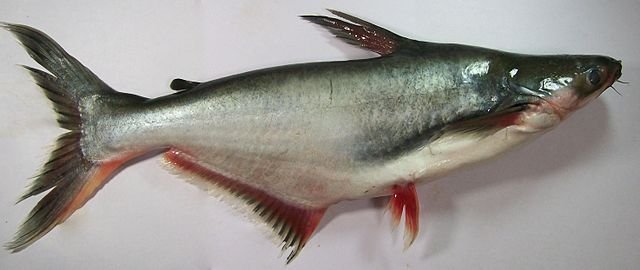
Low water temperatures during winter months can present significant challenges for Pangasianodon hypophthalmus, commonly known as striped catfish, aquaculture due to their impact on growth, health, and survival of this species.
To address these concerns, researchers from the University of Veterinary and Animal Sciences, Ataturk University, and the University of Galway have explored the potential of functional food additives to counteract the adverse effects of winter conditions on Pangasianodon hypophthalmus aquaculture.
This article delves into a comprehensive study assessing the effectiveness of various functional food additives in mitigating the impact of cold stress on striped catfish during winter breeding.
Winter stress impact on striped catfish
Cold stress is one of the most significant risks in aquaculture production due to disruptions in physiological homeostasis in cultured animals.
As temperatures drop, Pangasianodon hypophthalmus growth rates may decrease, leading to increased mortality rates and metabolic stress.
To combat these challenges, researchers conducted a twelve-week feeding trial to examine the effects of different functional food additives on the health, growth, and survival of the catfish.
Functional food additives and their effects
Feeding trials were conducted over 12 weeks during the winter months in Pakistan.
Researchers formulated four iso-nitrogenous diets (35% crude protein) based on a basal diet formulation. Three of the diets included antioxidants as food additives (Zinc acetate, Selenomethionine, and β-glucan). The fourth diet served as the control.
Positive results
While numerous studies have explored the use of zinc, selenium, and β-glucan in aquatic animals, their role in mitigating cold stress is not well-known.
The study yielded promising results, demonstrating the potential of certain food additives to improve winter breeding conditions for striped catfish:
- Survival rate: Dietary groups fed with β-glucan and Zn acetate exhibited notably higher survival rates (95.00% and 93.30%, respectively) compared to control groups (78.30%) and Se-Met (85.00%).
- Growth performance: Fish fed with β-glucan showed significant improvements in weight gain (20.75% increase), specific growth rate (13.75% increase), and reduced feed conversion ratio (9.64% decrease) compared to other groups.
- Stress reduction: Diets containing β-glucan and Zn acetate were associated with lower levels of serum cortisol and glucose, suggesting that these additives helped alleviate stress in the fish.
- Antioxidant activity: All groups of food additives showed higher antioxidant enzyme activity in the liver and muscle, potentially contributing to improved fish resilience against oxidative stress.
Interestingly, while the food additives had a positive impact on various performance indicators, they did not significantly influence fatty acid profiles or total body composition of the fish. However, Zn acetate and Se-Met diets resulted in higher body ash content.
Implications and conclusion
The study findings highlight the potential of functional food additives, specifically β-glucan and Zn acetate, to enhance winter breeding conditions for striped catfish. These additives not only improved survival rates and growth but also helped mitigate physiological stress induced by low temperatures.
The research underscores the importance of innovative strategies to maintain aquaculture productivity even under challenging conditions. By incorporating functional food additives, aquaculturists can adopt sustainable practices that promote fish health and overall success during the winter months.
The study received funding from the Punjab Agricultural Research Board (PARB), as part of the collaborative project “Interactive Effects of Manipulated Artificial Feeds on Growth and Breeding Potential of Channa spp.,” and from the Marine Institute.
Contact
Alex H. L. Wan
Aquaculture and Nutrition Research Unit (ANRU)
Carna Research Station, Ryan Institute and School of Natural Sciences
University of Galway
Carna, Connemara, Co. Galway, Ireland.
Email: alex.wan@universityofgalway.ie
Reference (open access)
Bano, S., Khan, N., Fatima, M., Khalique, A., Arslan, M., & Wan, A. H. L. (2023). Mitigating the impact of winter temperatures on striped catfish (Pangasianodon hypophthalmus) using functional feed additives. Journal of the World Aquaculture Society, 1–21. https://doi.org/10.1111/jwas.13010
Editor at the digital magazine AquaHoy. He holds a degree in Aquaculture Biology from the National University of Santa (UNS) and a Master’s degree in Science and Innovation Management from the Polytechnic University of Valencia, with postgraduate diplomas in Business Innovation and Innovation Management. He possesses extensive experience in the aquaculture and fisheries sector, having led the Fisheries Innovation Unit of the National Program for Innovation in Fisheries and Aquaculture (PNIPA). He has served as a senior consultant in technology watch, an innovation project formulator and advisor, and a lecturer at UNS. He is a member of the Peruvian College of Biologists and was recognized by the World Aquaculture Society (WAS) in 2016 for his contribution to aquaculture.
